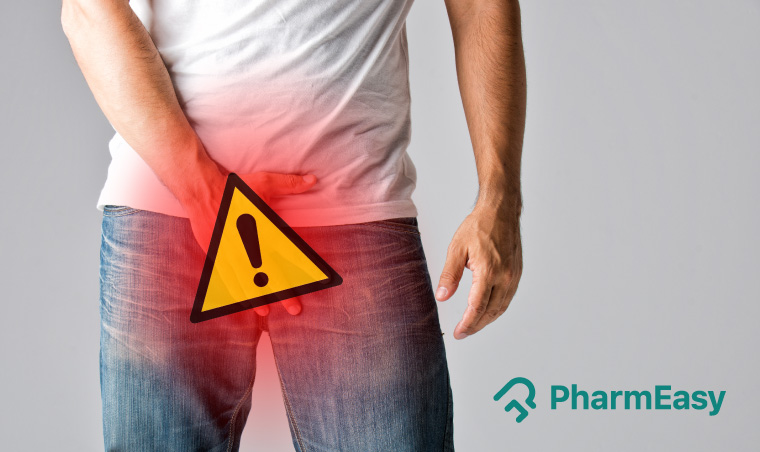Gonorrhoea: Its Signs, Causes And Cure
By Dr. Nikita Toshi +2 more

Get,

to manage your symptom
Get your,


4 Cr+ families
benefitted

OTP sent to 9988776655



You’ve successfully subscribed to receive
doctor-approved tips on
Whatsapp

Get ready to feel your best.

Hi There,
Download the PharmEasy App now!!


Register to Avail the Offer
Send OTPBy continuing, you agree with our Privacy Policy and Terms and Conditions

Hi There,
Sign up on PharmEasy now!!
Trusted by 4 crore+ families

OTP sent to 9988776655



You have unlocked 25% off on medicines




Code: NU25
By Dr. Nikita Toshi +2 more
The bacteria Neisseria gonorrhoeae is the source of the sexually transmitted infection (STI) known as gonorrhea.
This typical STI frequently affects warm, wet parts of the body, such as the:

People of any age or gender can have gonorrhea, although those between the ages of 15 and 24 are the most frequently affected.
Gonorrhoea that is left untreated can cause long-term health issues and in some cases, infertility. However, antibiotic therapy can eliminate the infection and lessen your risk of developing health issues.
Table of Contents
Gonorrhoea infection may have no symptoms initially. However, while symptoms can occur everywhere in your body, they frequently manifest in the genital tract.
Men who have gonorrhoea may experience the following signs and symptoms:
Women who have gonorrhoea may have the following signs and symptoms:
Gonorrhea has progressively developed resistance to the antibiotic drugs prescribed to treat it. If you’ve been treated for gonorrhea and don’t get better, you may be retested to see if there is resistance to the antibiotic you took. Chances are that you may respond to another antibiotic, so completing the treatment is very essential.
Dr. Ashish Bajaj , MBBS, MD in Clinical Pharmacology and Toxicology
These body areas are also susceptible to gonorrhea:
Having oral, anal or vaginal sex can result in gonorrhoea infection or transmission.
When having intercourse, using a condom or another barrier device can significantly reduce your risk of developing or spreading STIs like gonorrhoea. Just bear in mind that, especially if you misuse these barrier measures, they may not always entirely reduce your risk.
During vaginal delivery, gonorrhoea can potentially be passed from the mother (if infected) to the child.
Men who have sex with men and sexually active people u are more likely to contract gonorrhoea.
Additional elements that could raise your risk include:
In most cases, gonorrhoea can be cured with modern medications.
Home cures or over-the-counter medications cannot be used to treat gonorrhoea. You must seek a medical professional’s diagnosis and treatment if you suspect you may have gonorrhoea or if a sexual partner has a positive test result.
Males who have sex with other men, as well as their partners, should undergo routine screening.
You should get tested right away if you suspect you may have contracted gonorrhoea. Remember that this infection is fairly common and is nothing to be ashamed about.
By employing barrier measures for any sexual activity, undergoing routine STI testing and discussing STIs with your partner(s) before beginning a sexual connection, you can take precautions to prevent spreading or catching gonorrhoea.
Disclaimer: The information provided here is for educational/awareness purposes only and is not intended to be a substitute for medical treatment by a healthcare professional and should not be relied upon to diagnose or treat any medical condition. The reader should consult a registered medical practitioner to determine the appropriateness of the information before consuming any medication. PharmEasy does not provide any guarantee or warranty (express or implied) regarding the accuracy, adequacy, completeness, legality, reliability, or usefulness of the information; and disclaims any liability arising thereof.
Links and product recommendations in the information provided here are advertisements of third-party products available on the website. PharmEasy does not make any representation of the accuracy or suitability of such products/services. Advertisements do not influence the editorial decisions or content. The information in this blog is subject to change without notice. The authors and administrators reserve the right to modify, add, or remove content without notification. It is your responsibility to review this disclaimer regularly for any changes.

Leave your comment...
Comments